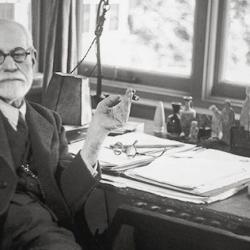“What purpose do the Weird Sisters have for confronting the hero—or what is their masters’ purpose, if they in fact have such masters?” asks Susan Snyder in her contribution to Macbeth. She doesn’t think the play gives a clear answer, and she adds that the play doesn’t explain Macbeth’s motivations either:
“Even Macbeth’s personal motives are mystified. In early soliloquies he explores at length the moral and political consequences of killing Duncan but not his reasons for doing so. Does he long to be king? Lady Macbeth says that he does, but what comes through in her speeches of I.v and I.vii is more her desire than his” (82).
Throughout these speeches, “there is nothing in Macbeth’s long soul-searchings about the sweet fruition of an earthly crown. He seems not so much consumed by desire as driven by some kind of obligation. Positive longings are oddly absent in him, as A. C. Bradley long ago observed: ‘The deed is done in horror and without the faintest desire or sense of glory,—done, one may almost say, as if it were an appalling duty’” (82).
Perhaps that is the point: Can murderous ambition ever be adequately motivated? Do we at some point come to the edge of pure nihilism? Is all malignity as motiveless as, according to Coleridge, Iago’s is? Speaking of the traitorous Thane of Cawdor, Duncan says “There’s no art to find the mind’s construction in the face.” Critics, take note.











